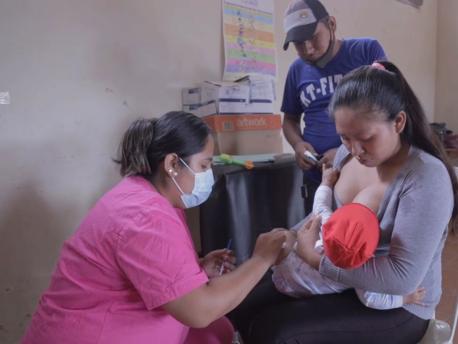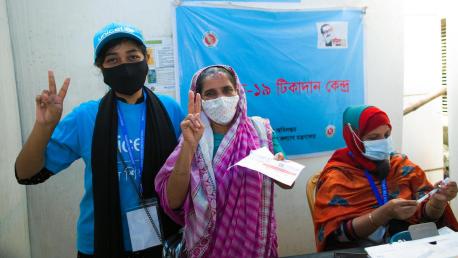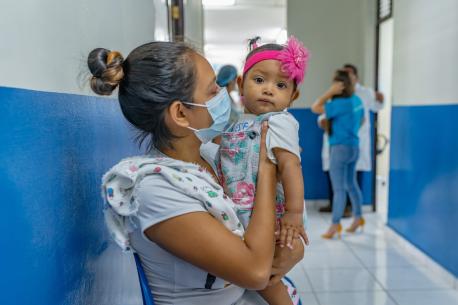
In Bolivia, COVID-19 Vaccines for Health Workers Protect Patients Too
For frontline health worker Jeanine Mendonza Robles in Pailón, Bolivia, being vaccinated against COVID-19 means more than just protecting herself — it also means keeping her patients, her family and her community safe. "Once I got the vaccine as a frontline worker, I felt safer to care for patients and avoided getting sick because of COVID," she says. "I have not had any adverse reaction to the vaccine."
On March 21, Bolivia received its first shipment of 228,000 COVID-19 vaccine doses through COVAX, a global initiative between the Coalition for Promoting Epidemic Preparedness Innovations (CEPI), the Global Alliance for Vaccines and Immunization (Gavi), UNICEF, the Pan American Health Organization (PAHO) and the World Health Organization (WHO). To date, more than 764,000 doses have been allocated to Bolivia through COVAX. As of early June, Bolivia had reported more than 414,000 confirmed cases of COVID-19 and nearly 16,000 coronavirus-related deaths.
As head of the COVID department at her small regional hospital, 32 miles east of Santa Cruz, Mendonza Robles says, "Before getting the vaccine, I was afraid. But after receiving the vaccine, I felt safer, also when dealing with patients. And I also feel safer when going home."
"I think it is a great help for us and the children who are a high-risk group, because many haven't received all their vaccines, so their immune system isn't that of an adult. Now that we have been vaccinated, we are the right staff to care for children and we feel more confident because we know that we are not going to carry high viral load. We are better protected to care for the children who come."
Read more about how UNICEF works with partners to deliver health services and lifesaving vaccines to millions of children in Bolivia every year.
Your generous contribution will support UNICEF's work as a key partner in the historic COVAX COVID-19 vaccine rollout around the world. Please donate today.
Top photo: At the UNICEF-supported hospital in Pailón, Bolivia, health workers who have received their COVID-19 vaccination know they are doing their part to keep their patients and their community safe. Video by Tong Su for UNICEF.
HOW TO HELP
There are many ways to make a difference
War, famine, poverty, natural disasters — threats to the world's children keep coming. But UNICEF won't stop working to keep children healthy and safe.
UNICEF works in over 190 countries and territories — more places than any other children's organization. UNICEF has the world's largest humanitarian warehouse and, when disaster strikes, can get supplies almost anywhere within 72 hours. Constantly innovating, always advocating for a better world for children, UNICEF works to ensure that every child can grow up healthy, educated, protected and respected.
Would you like to help give all children the opportunity to reach their full potential? There are many ways to get involved.




